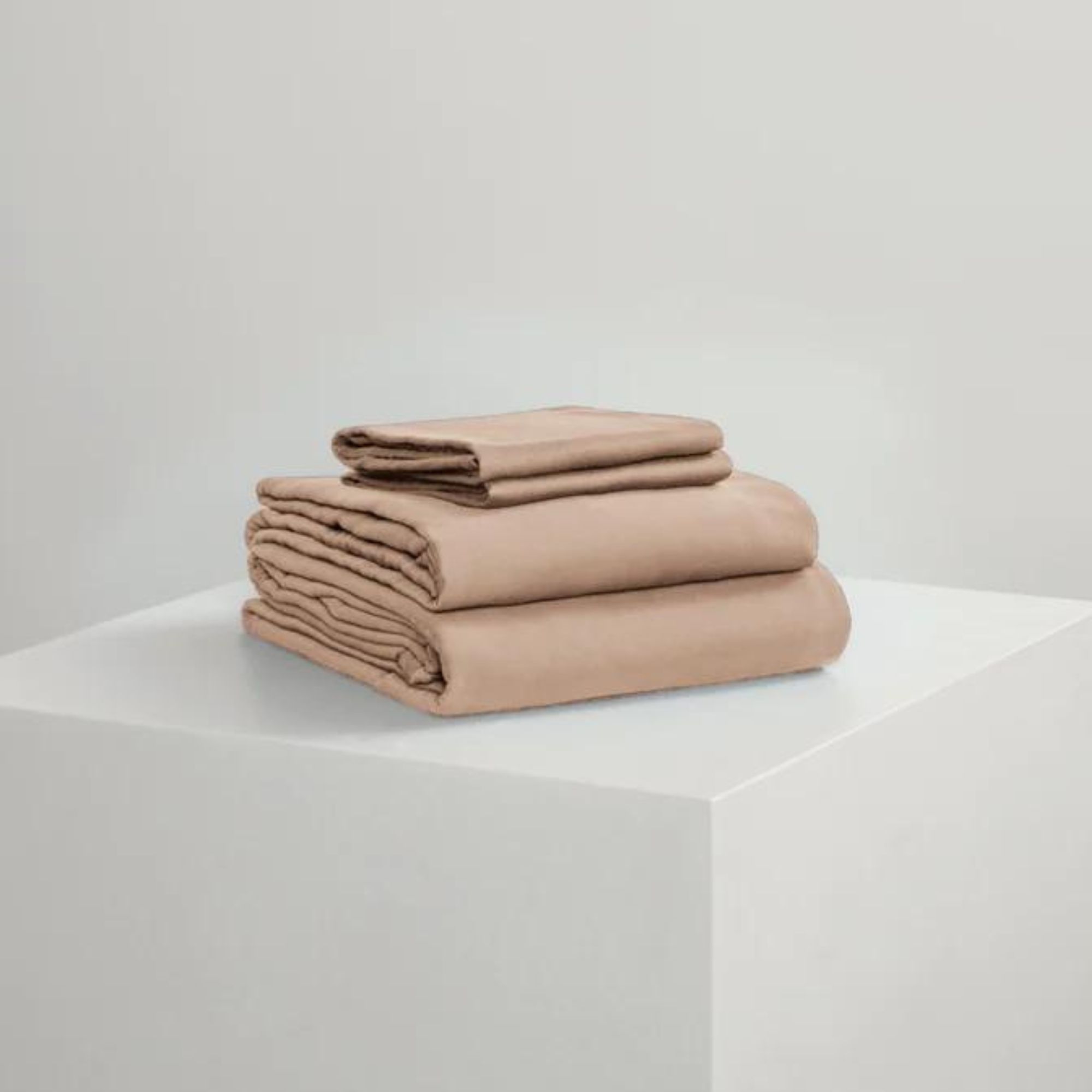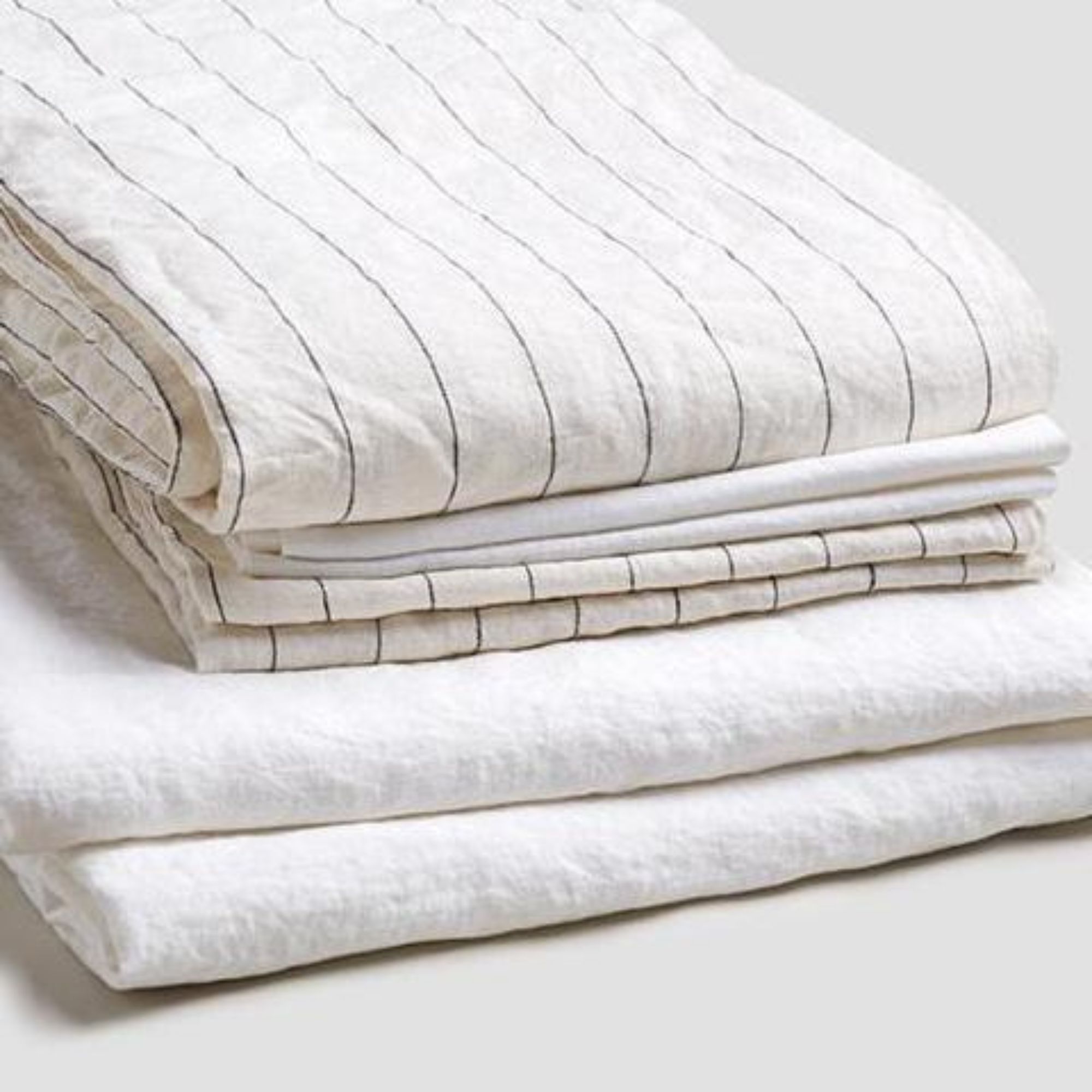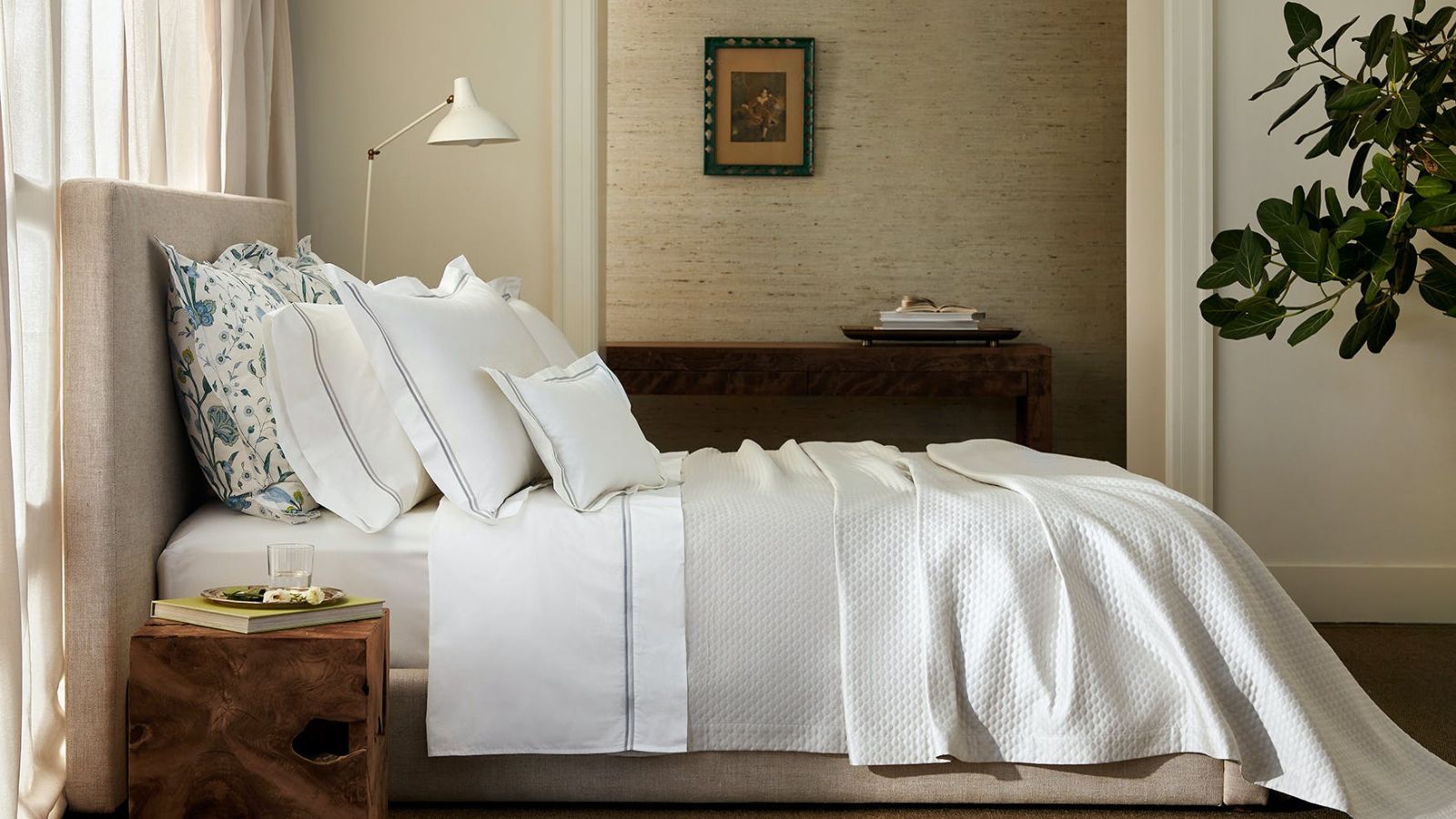
Design expertise in your inbox – from inspiring decorating ideas and beautiful celebrity homes to practical gardening advice and shopping round-ups.
You are now subscribed
Your newsletter sign-up was successful
Want to add more newsletters?

Twice a week
Homes&Gardens
The ultimate interior design resource from the world's leading experts - discover inspiring decorating ideas, color scheming know-how, garden inspiration and shopping expertise.

Once a week
In The Loop from Next In Design
Members of the Next in Design Circle will receive In the Loop, our weekly email filled with trade news, names to know and spotlight moments. Together we’re building a brighter design future.

Twice a week
Cucina
Whether you’re passionate about hosting exquisite dinners, experimenting with culinary trends, or perfecting your kitchen's design with timeless elegance and innovative functionality, this newsletter is here to inspire
Most of us will have a weekly routine for washing our bed sheets, and of course, we all know the importance of making our bed in the morning for our mental health. But one sleep hygiene task that often falls to the wayside, is ensuring we thoroughly air out our bedding. And in fact, it’s probably far more important than you think it is.
While washing your bedding is obviously essential (and there are many bedding laundry mistakes you should avoid), airing your bedding on a regular basis is probably something you've rarely considered – and as such, is something that many of us don’t actually do. But according to the experts, airing every component of your bed out will likely help to prolong the life of your bedding, prevent mold and other nasties, and put simply, should make for an all-round more pleasant sleeping experience.
So how should we actually be airing out your bedding (and how often), and why do we really need to be doing this?
Why you should be airing out your bedding

Consider just how many hours you clock up bed each week, month, and year – and then the kind of nasty build-up that might accumulate as a result, over time. Because of this, airing out your bedding is a brilliant way to keep your sheets fresh between washes and ensure you're properly sanitizing your bedding and keeping it fresh, alongside a regular wash routine, of course.
'Airing out your bedding helps to remove moisture and odors that can accumulate over time, whether from sweat, spills, or environmental factors,' Vanessa Terra Bossart, owner of Green Terra Cleaning explains. 'This prevents the growth of mold, mildew, and bacteria, which can lead to unpleasant smells and potential health issues, like respiratory issues.'

Vanessa Terra Bossart is a cleaning expert and owner of Green Terra Cleaning, a cleaning service based in San Francisco. She has a passion for environmental sustainability and prioritizing the wellness of every household she and her team clean. In her business, she choosing non-toxic, natural products, in order to enhance the quality of the air we breathe and ensuring the safety of the spaces she cleans.
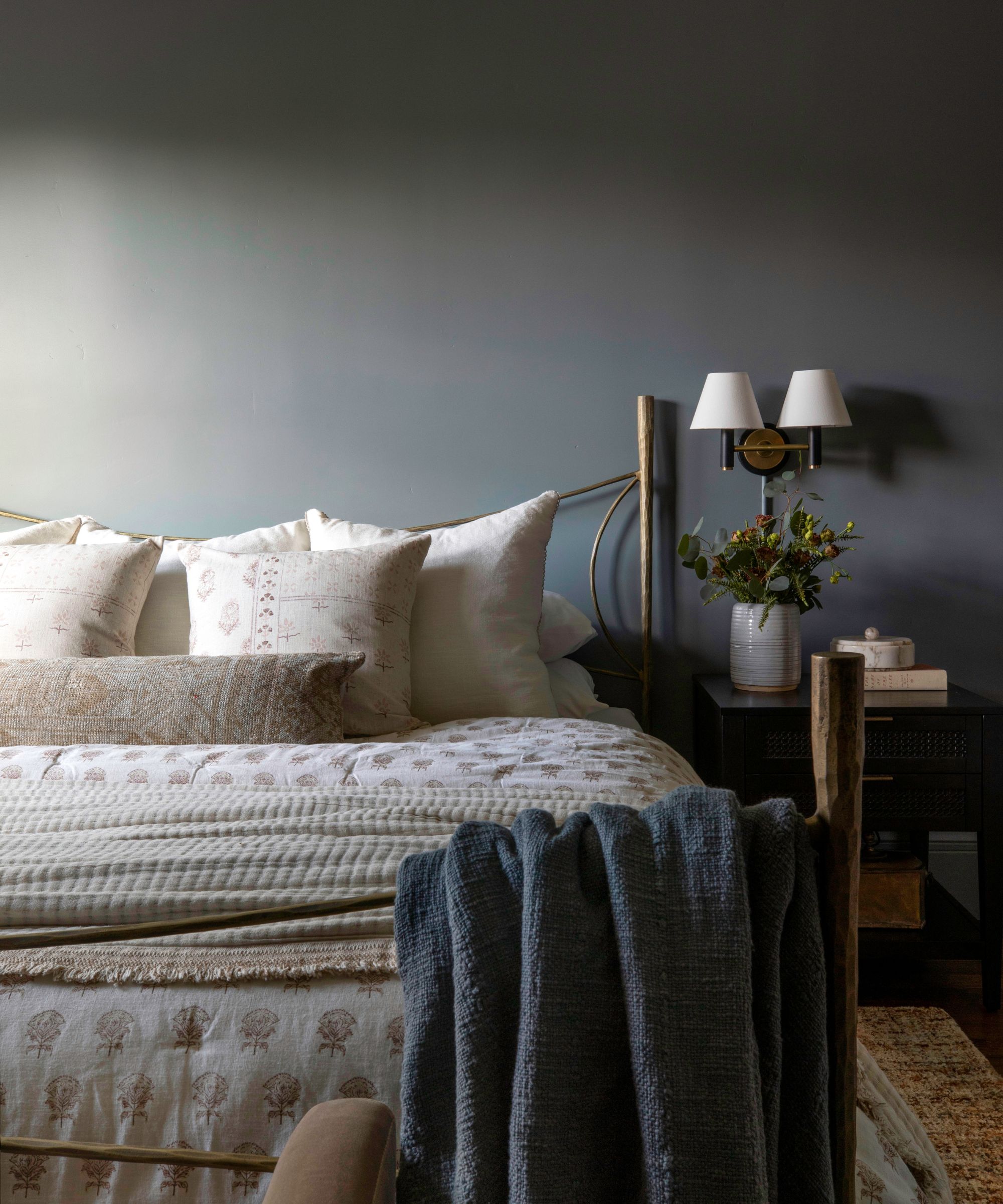
Properly airing out your bedding is also a helpful way to get rid of any nasty dust mites that like to live within your undisturbed sheets, Marten Carlson, a Certified Sleep Science Coach at Mattress Clarity says.
'Regularly airing out your bedding can also help prevent dust mites from accumulating, as they tend to thrive in warm and damp environments. Dust mites can make symptoms worse for allergy sufferers and keep them up throughout the night,' he explains.
Design expertise in your inbox – from inspiring decorating ideas and beautiful celebrity homes to practical gardening advice and shopping round-ups.
And that’s not all. Airing out your bedding regularly can actually help to maintain its quality over the long-term, therefore also ensuring it lasts longer.
'Proper airing out of bedding helps to preserve the quality and lifespan of your sheets, pillowcases, and comforters,' Vanessa says. 'It prevents the buildup of oils, dirt, and debris that can weaken fabrics and cause them to deteriorate over time.'
So, while most of us are well aware of how often we should be washing our sheets – how often should we be airing our bedding out? Julia Forbes, a Certified Sleep Science Coach at Sleep Advisor suggests doing this as often as possible.
'I recommend airing out your bedding as often as you can. If you can’t air it out every day, then try to do it twice a week if possible. But remember; while airing out your bedding is helpful, ultimately washing your bedding every one to two weeks will keep it the freshest.'

Julia is a Certified Sleep Science Coach and Lead Reviewer at Sleep Advisor, regularly testing out bedding items like mattresses for Sleep Advisor.
How to air out your bedding
When planning how to properly air out your bedding, the most important thing is to make sure to address all the different components of your bed, including everything from your pillows to your mattress, to your sheets and your duvet. Leaving no stone unturned will ensure that moisture and build-up will have nowhere to hide!
So what are the best methods for airing out your bedding on a regular basis?

1. Make sure to shake and rotate your bedding
One of the best ways to properly air out your bedding is simply to give it a good shake in the fresh air, and to rotate the items, to make sure that you’re evenly distributing your usage of them.
'I recommend rotating and shaking out your bedding regularly, ideally every week. This helps to fluff up pillows, blankets, and comforters while also allowing any trapped dust or debris to be released at the same time,' Vanessa says.
This process is even more important for your pillows, Drew Miller, a representative at Sit 'n' Sleep points out. 'Regularly airing out pillows is crucial, because most cannot be machine-washed. To help release trapped moisture, remove the pillowcases and fluff the pillows. Then, air them out in a well-ventilated location,' he suggests.
Not only can shaking and rotating your bedding be an excellent way to rid it of any allergens or dust mites in a flash, but it can also help to keep your bedding materials looking as good as possible.
Jade Piper, Operations Manager for BetterCleans says, 'not only will shaking your bedding help to get rid of any stale air, but it'll also help to prevent clumping, making your bedding look neater and more polished.'
2. Put your bedding in the sun
If possible, laying your bedding outside in the sunshine is one of the best ways to air it out, especially when it comes to zapping any lingering bacteria.
'On a sunny day, take advantage of natural sunlight and fresh air by hanging your bedding outside to air out,' Vanessa says. 'UV rays from the sun have natural antibacterial properties that can help kill germs and eliminate odors.
'However, be sure to hang bedding in a well-ventilated area away from direct sunlight to prevent fading.'
This is a particularly helpful option for pillows, given that certain pillow filling fibers cannot be machine washed – in this case, the sun can provide a healthy dose of sanitization.
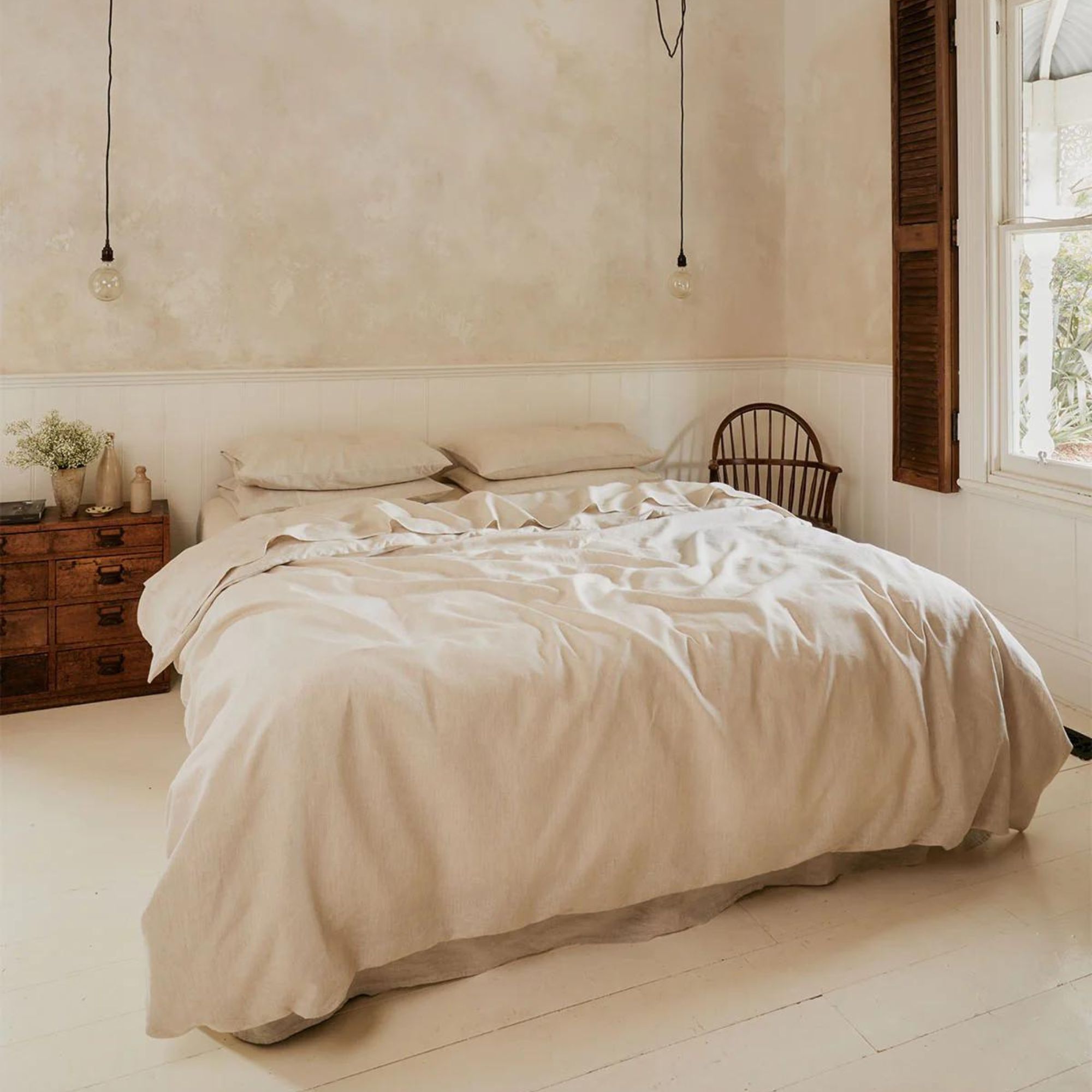
3. Open windows and doors
If you’re not able to place your bedding outside to air, opening up your doors and windows for some ventilation is an equally good option.
'If outdoor space is limited, or if the weather is bad, you can use a clothesline or drying rack indoors to air out your bedding,' Vanessa says. 'Ensure there's enough space between items for proper airflow, and consider placing a fan nearby to aid in circulation, too.'
In fact, this trick can be especially useful for airing out your best mattress, which can be especially vulnerable to moisture, dust and germ build-up thanks to the fact that they it can't be washed in the traditional way.
'Although it may not be something you've done before, it is seriously beneficial to let your mattress air out by keeping it uncovered for a few hours, to let it any moisture dry out,' Julia says.
4. Invest in breathable materials
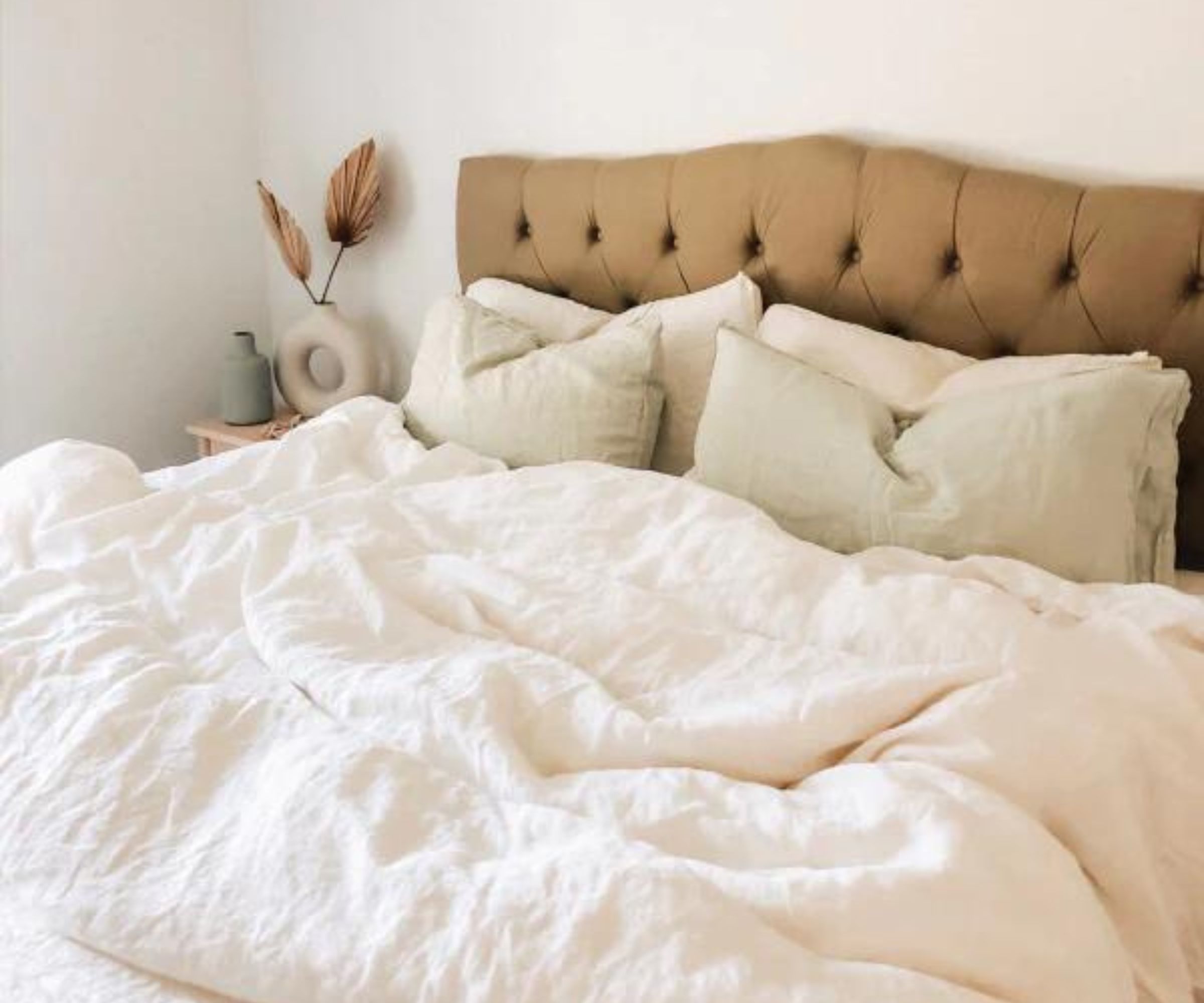
If you're keen to achieve the best results for airing out your bedding in the future, you might also want to consider whether buying new bedding could be helpful – particularly if your current bedding feels and looks past its best (perhaps it feels heavy with sweat, yellow stains, or has a bit of a smell, for example).
'If you can, invest in breathable bedding materials,' Vanessa says. 'Choose bedding made from breathable and moisture-wicking materials, such as cotton or linen, to help regulate temperature and prevent moisture buildup.
'These materials are more resistant to odor and bacteria growth, making them easier to air out and maintain for the long term,' she explains.
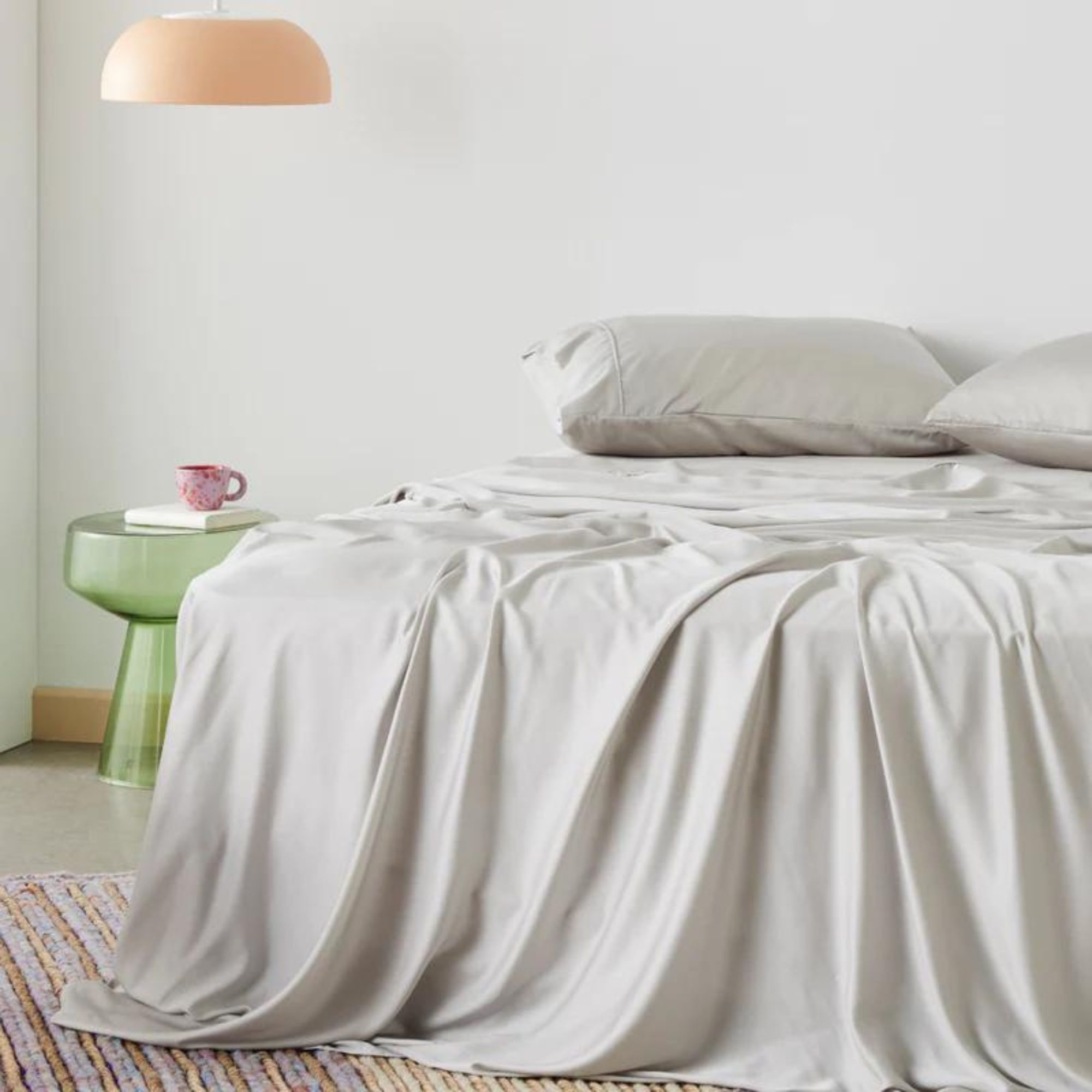
These silky-smooth sateen sheets were voted 'best cooling sheets' by the Homes & Gardens team. Made from sustainable bamboo, they are perfect for hot sleepers.
Choosing the best bed sheets can make a big difference to how your bedroom looks and the quality of sleep you have.
Amy Hunt is a freelance lifestyle writer and editor primarily covering homes and interiors, wellness, travel and careers. She was previously Lifestyle Editor at woman&home, commissioning and editing the homes, books and features sections of the website,
In 2019, she won the AOP Digital Journalist of the Year Award, for her work on womanandhome.com. Having worked in the industry for over eight years, she has contributed to a range of publications including Ideal Home, Livingetc, T3,Goodto, Woman, Woman’s Own, and Red magazine.
